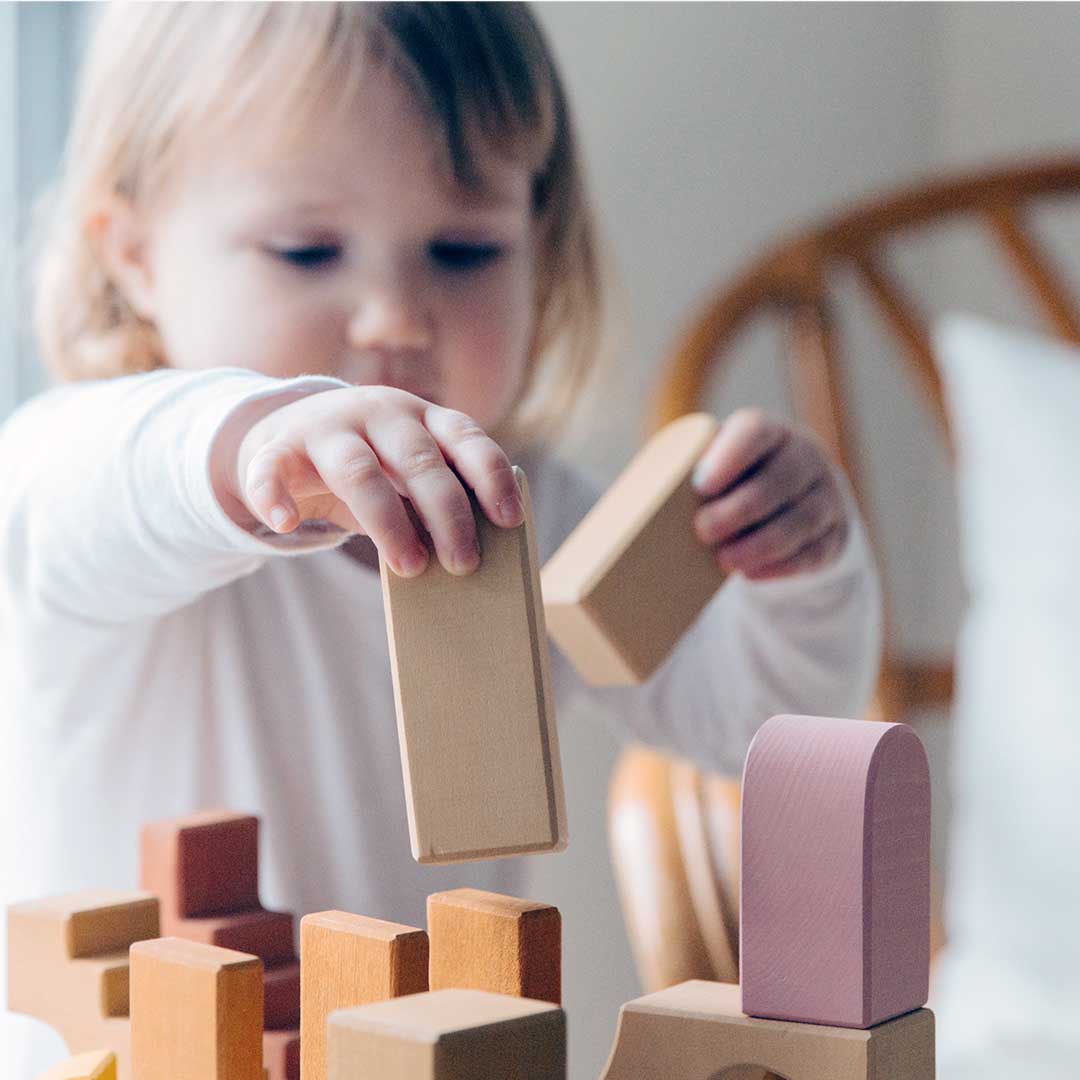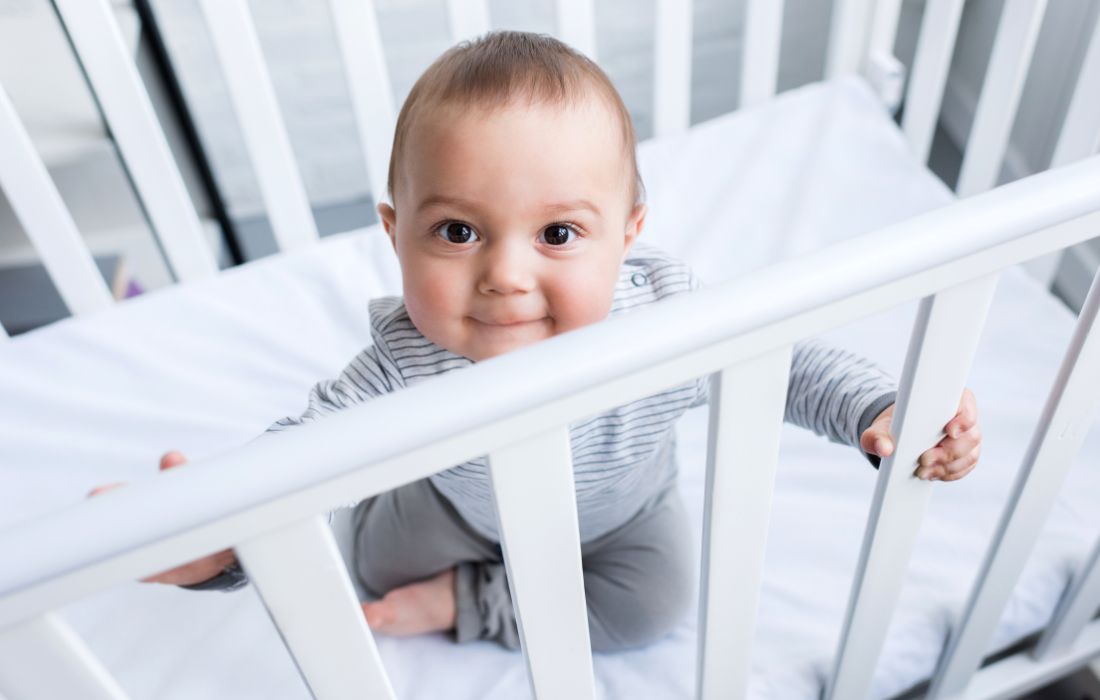Congratulations! You’ve made it out of the phase of intense and frequent sleep regressions. Yet, your child’s sleep can still be affected by major changes for the rest of their lives.
Face it, we are all sleepless now and then. Starting a new school, moving homes, and travel can throw any child’s sleep off temporarily. But the rapid pace of developmental changes — and sleep regressions — that babies experience in their first 2 years has slowed by now. Even so, the 3 year sleep regression is one last classic sleep interruption that may have you and your child up at all hours.
Are you in the midst of the 3 year sleep regression? Consider these common signs:
- Your child gets out of bed and comes to your room multiple times a night and it feels like it’s out of nowhere.
- Your child resists letting you leave at bedtime, coming up with endless reasons for you to stay.
- Although they were sleeping until 6:30, your child is suddenly waking earlier than 6.
Have no idea where to begin solving your child’s sleep issues? Start with this guide.
Have no idea where to begin solving your child’s sleep issues?
Start with this guide.
Are Fears and Phobias Keeping Your Child Awake?
Just as in all the sleep regressions you have experienced before, the 3 year sleep regression happens because of major developmental growth in your child’s brain and body. While the temper tantrums and defiance that made your 2 year old supremely challenging to parent may have passed, your child could still be pushing you in new ways.
With each developmental leap they’ve made so far they’ve gained independence. This is an age where children commonly run away from their parents and caregivers during the day. They’re independent at the park, into preschool, down the aisles of the grocery store, but can’t be parted from them at night. Sometimes, as their world has grown bigger with each step and word they’ve learned, so have their fears. Their imaginations have also grown right alongside their other skills and parents may start to see their 3 year old afraid of monsters or other imagined threats at night.
By this age, your 3 year old may also have a pretty firm grasp on language and be perfectly comfortable ordering you around at bedtime to delay sleep. Do requests for more sips of water, more stories, and to lie down in their bed sound familiar?
Talk to a Gentle Sleep Coach and get sleep help!
Book a 20-minute call for just $45.
Is Potty Training Causing Lost Sleep?
If your 3 year old has started potty training it can impact bedtime and night time sleep, too. Some children are thrown off by wearing underpants during the day but putting on a diaper for bedtime. Using the potty can be a convenient delay tactic at bedtime — and a VERY confusing one for parents! How do you know if they really need to go to the bathroom again? But what if they really do? You don’t want to have accidents or setbacks! And it’s not hard for you to imagine the tricky transition to sleeping without diapers. There WILL be accidents along the way that have you and your child up in the night changing sheets and jammies. Here’s what can you do to make potty training work with your child’s sleep, rather than against it:
- Make sure a last trip to the toilet is part of your bedtime routine.
- Consider purchasing a set of waterproof pads for their bed — to save the mattress and make clean up simpler.
- Keep extra sheets and jammies next to the bed and ready.
- If your child refuses to wear diapers or is ready to sleep without them but is still learning to get up to pee in the night, consider purchasing jammies with built in protection.
- Your child may not be ready for staying dry at night. Check your family history and talk to your doctor.
Do you need more resources on potty training?
See some ideas and strategies for potty training here.

Sleep Regressions Require Patience
All sleep regressions ultimately require patience. They are temporary phases that your child will grow out of, but they can be SO hard. To help you and your child get through the 3 year sleep regression smoothly, try these tips:
- Talk to your child about their fears during the day — naming it takes its power away!
- Spend fun playtime in their room to strengthen positive associations that keep night time fears at bay
- Keep a regular and early enough bed time
- Make your pre-bed routine calming and affectionate to help reassure a child who’s struggling to separate with you at bedtime
- Consider adding a small training potty in their room for overnight use
- Stick to your GOOD sleep habits and avoid creating new ones you don’t want to have after the sleep regression passes
- Have a clear and supportive plan for helping your child learn to use the toilet on their own
Impact of Nap Schedule Changes
Changes in your 3-year-old’s nap schedule can have a significant impact on their sleep patterns and contribute to sleep regressions. Adjustments in naps may disrupt their circadian clock, making it harder for them to fall asleep at night. As a parent, here are some things to keep in mind:
- Overtiredness: Missing a nap or shortening it too much can lead to overtiredness, which often results in difficulty settling at bedtime or night wakings.
- Quiet Time: Even if your child resists napping, incorporating a daily quiet time can help their body rest and prevent behavioral challenges later in the day.
- Environmental Changes: Adjustments like starting preschool or increasing screen time can affect their need for naps and overall sleep routine. Create a calm, consistent environment to support rest.
- Daily Routine: Maintaining a predictable schedule helps regulate their body’s circadian rhythm, ensuring they are ready for both naps and bedtime.
- Nap Protests: If your 3-year-old is protesting naps, they may not be entirely ready to give them up. Stay consistent and patient, as some quiet time is still beneficial for them.
Remember, every child is unique, and finding the balance between nap schedules, bedtime routines, and daily activities is key to managing their sleep regression effectively.
Transitioning from Crib to Bed
Transitioning your toddler from a crib to a bed is a significant milestone, but it can also bring challenges that impact sleep patterns. This change often coincides with developmental leaps, making it a common contributor to sleep regression. Here’s how to navigate this transition effectively:
- Bedtime Routine: Reinforce a calming and consistent bedtime routine to help your child feel secure in their new toddler bed.
- Camp It Out Method: If your child struggles with separation anxiety, consider the “camp it out” method. Stay near their bed initially, gradually moving farther away each night to build independence.
- Fading Method: Slowly introduce the new bed by alternating between the crib and bed during nap times and bedtime, gradually transitioning fully to the bed.
- Sleep Environment: Ensure their sleep environment is safe and inviting. Add familiar items like a favorite blanket or stuffed animal to create a sense of comfort.
- Nap Time Sleep Training: Use nap time to practice sleep training for your 3 year old in the new bed. This can help your child adjust to the change more gradually.
- Night Wakings: Be prepared for potential night wakings as your toddler adjusts. Reassure them with a quick visit but avoid creating new sleep dependencies.
- Rewards System: Consider implementing a simple rewards system to encourage your toddler to stay in their bed throughout the night.
- Separation Anxiety: Acknowledge their feelings and provide reassurance, but remain consistent in your approach to reinforce confidence.
- Sleep Debt: Monitor for signs of sleep debt, such as crankiness or difficulty concentrating, and adjust their schedule to ensure they are getting enough rest.
- Potty Training: If potty training overlaps with this transition, include a small potty near their bed to minimize disruptions during the night.
Every toddler adjusts to a bed at their own pace. With consistency, patience, and a supportive approach, this transition can be a positive step towards fostering independence and healthy sleep habits.
Addressing Specific Challenges
1. Cry It Out Isn’t My Thing: For parents who wonder if cry it out (CIO) is the solution for their 3-year-old’s regression, I’ll be honest—it’s not my preferred approach. Gentle sleep coaching works better for both parent and child in this developmental phase. Supporting your child while they learn to self-soothe ensures trust and lessens bedtime battles in the long term.
2. 3.5-Year-Old Sleep Regression: Some parents find that the sleep regression doesn’t end at three but persists. At 3.5 years, challenges like waking at night or fighting bedtime might still happen. The key is consistency in your sleep routine and not letting frustration derail your progress.
3. Bedtime Battles Persist: A 3-year-old refusing to go to sleep or fighting naps is incredibly common. Strategies like a calm bedtime routine, dim lighting, and gentle reinforcement of rules can make a huge difference. Remember, this is a phase—stay consistent and patient.
4. Waking Up Crying: If your 3-year-old is waking up crying every hour, it may be tied to separation anxiety or an overactive imagination. Comfort them but avoid long interactions that might reinforce waking as a way to get your attention.
5. Length of Sleep Regressions: While every child is different, the typical 3-year sleep regression lasts a few weeks to a couple of months. Having a clear plan and support during this time will help manage the disruption.
6. 34-Month Sleep Regression: Sometimes, parents report that just before their third birthday (around 34 months), sleep disruptions begin. These regressions often align with new skills and cognitive leaps.
7. Overcoming Nap Regression: If your 3-year-old is suddenly resisting naps, they may be testing boundaries. Stick to quiet time even if they don’t sleep—it ensures they still get rest.
8. Why Is My 3-Year-Old Crying at Night?: Developmental fears, such as monsters or being alone, often surface. Reassurance during the day can help them feel more secure at night.
9. What About “Cry It Out” at This Age?: As I mentioned, CIO is not my approach. It’s important to balance being present for your child while encouraging independence.
10. Helping 3.5-Year-Olds Sleep: Older preschoolers may wake frequently due to over-stimulation or inconsistent routines. Reinforcing predictable schedules is key.
11. Sleep Issues Beyond Age 3: For children still waking at night past three, it’s worth evaluating for other causes like anxiety, nightmares, or environmental disruptions (light, noise, etc.).


